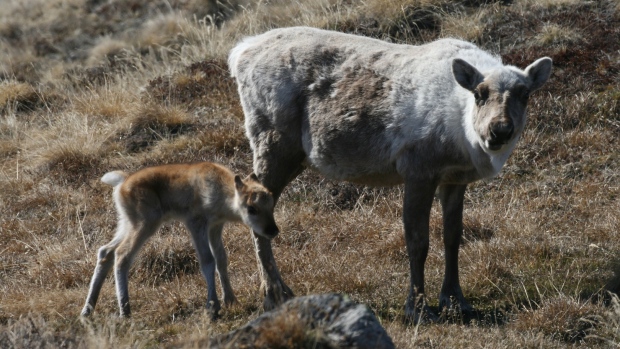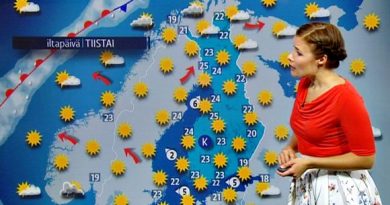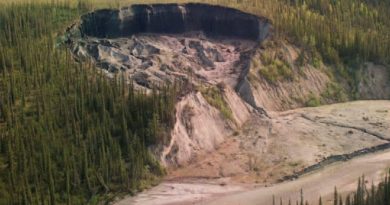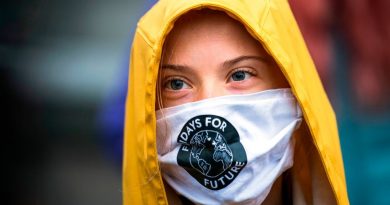Climate change can be deadly to caribou calves says study

The melting of arctic sea ice is indirectly leading to higher mortality among caribou calves, new research suggests.
Penn State University biologists Eric Post and Jeffrey Kerby have unravelled the links between sea ice loss, the timing of plant growth on land and caribou breeding in Greenland over the past two decades.
They have discovered that as the Arctic climate warms, plants are emerging earlier. That means they have become older and less nutritious by the time the caribou arrive at their breeding grounds looking for tender young shoots to nourish them in preparation for giving birth.
“The animals show up expecting a food bonanza, but they find that the cafeteria already has closed,” said Kerby in a statement.
Arctic sea ice has been melting in recent decades, and the area of the Arctic that is covered by ice during the summer has been declining.
The researchers found that less sea ice was closely linked to higher average temperatures inland during late May and early June, when caribou arrive at the breeding site they have used for 3,000 years. The warmer the temperatures, the earlier plants emerged.
However, the caribou tended to give birth at the same time every year, regardless of when the plants emerged.
The researchers found that when a greater majority of plants had already emerged at the average date that the caribou gave birth, the mortality rate of the calves increased and fewer survived.
The researchers published their results Tuesday online in Nature Communications.
Post and his colleagues had previously found a link between the earlier timing of plants emerging after the winter and higher mortality among caribou calves. However, the new study makes a link between that mismatch and climate-related environmental factors such as temperature and sea ice loss.
Post was also the lead author of a study published in April that suggested warming related to the loss of sea ice might have a range of impacts on land animals, including disrupting the food sources of animals such as caribou. That study also warned that in the Canadian Arctic, the later freeze-up of the ice and increased ship traffic could affect the annual migration of the Dolphin and Union caribou herds.
Climate change-linked mismatches in the timing between the arrival of animals to an area and the peak availability of their food have already been linked to the decline of populations of other species, such as bees and songbirds.



